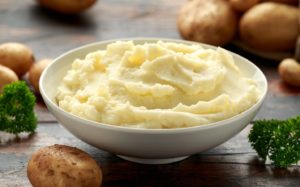
Most people find that their mouth is fairly well-recovered within 7 – 10 days after wisdom tooth extractions. During that brief recovery period, it is important that you adjust your routine to facilitate a comfortable and complication-free recovery. One of the biggest aspects of your life that will be affected is your diet. What should you eat after your procedure, and what foods should you temporarily avoid? Here is a brief guide to help you out.
Foods to Avoid
Some types of food that you should avoid after wisdom tooth extractions include:
- Crunchy and hard foods. Things like potato chips, hard candies, and similar items could irritate your surgical sites and perhaps even dislodge your blood clots. (Premature removal of the blood clots at the extraction sites can lead to a painful complication known as dry socket.)
- Hot foods. Your mouth may be numb for several hours after your surgery. You may accidentally burn yourself if you try to drink hot coffee, soup, or anything else served at a high temperature.
- Chewy and tough foods. Your mouth will likely be sore for at least several days after your appointment. It is unlikely that you will feel up to putting a lot of effort into chewing things like tough meats or chewy baked goods.
- Alcohol. Alcohol may slow down your body’s healing process. It could even interact with any pain medications that you are taking.
What to Eat
At first, you should stick to a diet of liquids and extremely soft foods. Here are some ideas to help you get started on making your grocery list:
- Yogurt
- Applesauce
- Brothy soups (These should be served warm or at room temperature — not hot.)
- Smoothies
- Ice cream (without nuts and other hard add-ins)
- Meal replacement shakes (Ensure® and similar products)
When you are feeling up to it, you can try some fork-tender foods (anything that is easy to cut with the side of a fork). This category includes things like scrambled eggs, non-crusty breads, certain types of fish, pasta, and more.
After the soft tissue at your surgical sites has mostly recovered, you can resume a normal diet. For most people, this happens within 1 – 2 weeks of their surgery.
Be Cautious and Listen to Your Body
People heal at different rates, so it is important to be aware of how your body is feeling and be cautious when you start to add foods back into your diet. If anything causes significant discomfort, it is best to set it aside and try again in a few days. Your patience will reward you with a comfortable wisdom tooth extraction recovery. Before you know it, you will once again be able to chow down on all of your favorite treats!
Meet the Practice
Dr. Steve Koo has well over a decade of experience as an oral surgeon. Together with Dr. William Shepard, he provides a broad range of services, including wisdom tooth extractions, in a comfortable and welcoming environment. To learn more about our practice and how we may be able to serve you, contact our Katy/Cypress office at 832-353-1100.

